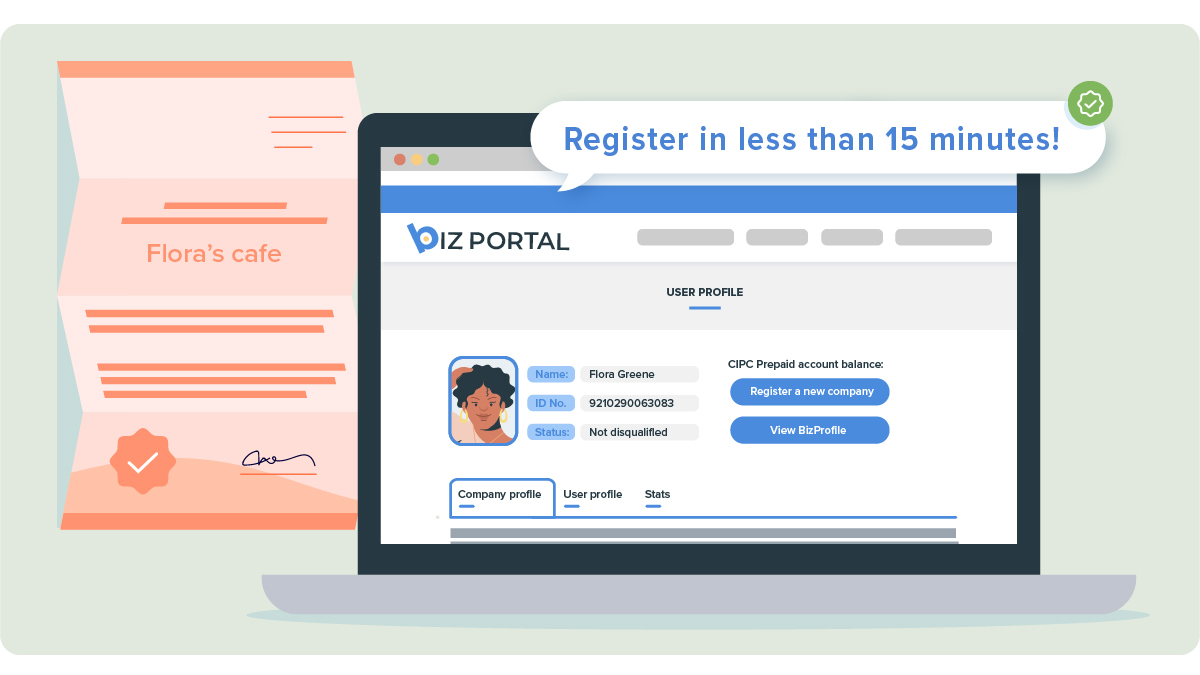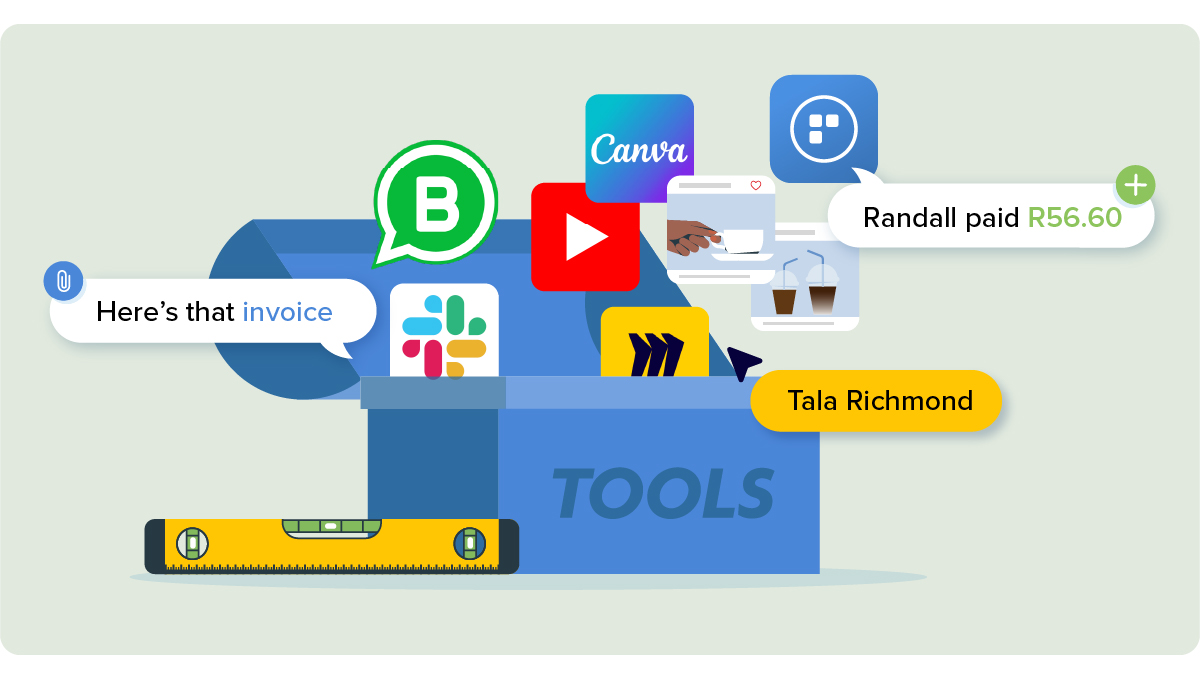6 factors you should consider when starting a business

Craig
30 Mar, 2022
For many, finding employment before the pandemic was already tough. Trying to find work now seems almost impossible.
Under the current challenging economic circumstances, more and more people are turning to entrepreneurship opportunities to generate an income.
Regardless of the circumstances that drive you to it, starting a new business venture requires good planning, continuous improvement, and the willingness to start over a few times.
An African proverb states, “The best preparation for tomorrow is to make sure today’s work is superbly done.” As you’ll discover, setting up a small business means you’ll constantly be in a state of preparation.
We’ve put together advice on the areas you’ll need to prepare to get your business off the ground. We’ll cover the following topics:
- Generating a business idea
- Choose a business name
- Register your business
- Get funding for your business
- Create an online marketing strategy
- Tools to help you grow your business
Read more: In good company: deciding how to structure your business
Generating a business idea

Figuring out the answer to “What will I sell or what can I offer?” is the first step for anyone starting a business. It’s also arguably the hardest part for most.
If the answer is not apparent, you will need to embark on a journey of discovery. The journey won’t always lead to a million-rand idea, but your learnings will position you to better understand what you would like to do with your business.
It is also unlikely that someone will hand you a business idea that is ready to run with. Instead, you need to look for the moments and conversations that will trigger an idea that you can develop.
There are four approaches you can follow to generate suitable business ideas.
1. Personal brainstorm
Brainstorming works best when you have a set of questions to get you going. Your session might include asking any of the following:
- Do you have any special abilities?
- What do you do well?
- What do people ask you to do again?
- Which tasks are you easily able to do?
- Which topics are you most interested in?
Bear in mind, these questions are aimed to get you thinking and will trigger even more questions. This is a good time to work on a broad concept of your idea; you don’t need the exact details just yet.
2. Pricing model approach
This line of thinking starts with the end in mind: how you’d like to get paid. Ask yourself:
- How will I bill for my services?
- Am I looking to offer once-off sales or recurring services?
It is important to think about this because it will highlight the ideas that are suitable for the pricing model you feel most comfortable with.
Read more: 6 ways SnapScan can help your business collect payments
3. Google keyword research
People find everything they need on Google. Their final purchase is often the result of an initial keyword search. If you can determine which keywords are being used, you are on your way to creating a business idea shortlist.
How do you find the keywords? Use keyword research tools to help you determine what people are searching for the most.
We recommend one of these three keyword research tools. Some offer free services, and others you need to pay for.
4. Solving a problem
Another useful way to find your new business idea is to write a list of problems you want to solve.
Create a numbered list and answer the prompt “My business helps people to…”. Write down a few possibilities next to each number.
Another prompt you can use is “My business sells products to…”
By now, you would have noticed that it’s probably valuable to work through all the business idea models. Grab a few more, and you will have a toolkit to develop some great ideas.
The key is to set aside dedicated time and be intentional about the process. Speak to people, sign up for webinars, and be patient.
Choose a business name

Your name is your identity. It’s not just your identifier.
The name of your business will not only appear on your labels and business cards but also in your email address and on a Google search.
Many new business owners opt to give their businesses a test run on a small scale without completing an official name registration and therefore choose a name without thinking about the future implications. Doing research is essential to avoid investing your time and money into a product marked with a name that’s already in use.
You also want your name to be memorable and easy to pronounce. In today’s noisy attention economy, you want to remove anything that causes even the slightest anxiety from your prospects. Think of it this way, “if they can say it, they are more likely to buy it”.
There is space to play with something catchy and clever but do your best to choose a name that is not unsettling. Imagine what it would feel like when you are reading your email address to someone. Short and punchy is better than long and confusing.
You can also use the domain name checker WHOIS service to determine if you would be able to get the web address that has your business name.
Register your business

It’s common for new business owners to delay company registration. You may want to think about doing it as soon as possible to avoid someone snatching your cool business name.
There are horror stories of entrepreneurs who worked tirelessly to get their products created and delivered, only for another entity to come along and register a business using that product name.
A registered business will become an entity with its own tax number and bank account so as not to interfere with your personal financial affairs.
Where do you do it, and what does it cost?
BizPortal is an online service created by the Companies and Intellectual Property Commission (CIPC) to offer company registration and other related services such as B-BBEE certificates and quick sign-ups to business banking accounts.
A new company registration costs only R125 without a name (you will just have an entity number) or R175 including a name. The process takes less than 15 minutes to complete.
You can also use the same platform to register for a B-BBEE certificate at no cost. If you are ready to employ people, you can also use BizPortal to complete your UIF and compensation fund registration.
The complete set of requirements for a business registration via BizPortal are:
- A South African ID
- A 3D Secure cheque or credit card that is enabled for online transactions
- A list of up to four proposed names for your company
- The identity documents of all directors you wish to add to your company
- You will also be presented with questions to verify your identity
Registration for new private companies (PTY) LTD and non-profit companies (NPC) are also available.
After completing the registration process, you will be notified about the status of your application via email and SMS. You could receive your company documents as soon as the next business day.
Get funding for your business

Your business will require finance to get off the ground. Depending on the nature of your business, you may not be able to create your first product without upfront cash. Some businesses can operate and pay for operating costs with sales profits, while others will require funding to get started.
Funding is a very complex topic for small businesses. The underlying thought about funding that you need to keep in mind is that no person or organisation will hand over free money. This is true even of government grants.
There might not be a repayment required, but the process can be lengthy and strenuous. As a business owner, you will need to have your ducks in a row when applying for funding. Ultimately your funder wants to be assured that your business is profitable over an extended period.
Read more: How to get funding for your small business
Documents you should prepare for funding
Details about your financial requirements need to be captured in your business plan. A business plan is a well-structured document that defines your objectives, your strategy to achieve those objectives and your financial plan.
Where financing is concerned, you will need to show an income statement, a balance sheet, and a cash flow statement.
The income statement will show your income and expenses. On your balance sheet, you will declare the value of your business assets, including your cash-on-hand amount and the total value of your liabilities.
The difference between your assets and your liabilities will determine your equity. The cash flow statement will describe the details of your cash movements.
These three documents are vital in preparing your business for funding requests.
Securing funding for your business will seem like a daunting task. Thankfully, there are local organisations that are willing to guide you towards getting a tailored solution for your business. Here are a few you can contact for assistance:
- Lulalend
- NYDA Grant Programme
- Fundrr
- The Small Enterprise Finance Agency (sefa)
- Technology Innovation Agency
Create an online marketing strategy

Techopedia describes online marketing as “a set of tools and methodologies used for promoting products and services through the internet.” As you draw up your business plan, you need to consider how you’ll spread the word about your business to potential customers, including which tools you’ll use.
The tools and methods used for online marketing include email, social media, banner display advertising, search engine marketing(SEM), search engine optimisation (SEO), lead generation, etc.
Online marketing combined with continued innovation in online payment solutions for small businesses means that you can reach your target audience online and facilitate easy payments all in one go. An example of this is a Facebook ad that drives traffic to a website where the consumer can pay for the product. The entire journey is online.
When it comes to setting up your online marketing strategy, these are four tools you should consider adding to your toolkit
1. Email marketing
Email marketing is quite simply a marketing technique that uses email to promote your business. There are tools available at different levels that can automate your email marketing efforts. When a customer consents to you sending them an email, you now have a means for effective and powerful communication.
Email marketing can be used to share a regular newsletter or collect customer reviews or testimonials for effecting change in products.
It’s also essential to use email if you’re setting up an ecommerce website where users might abandon a shopping cart or where a subscription sign-up is left incomplete.
Read more: 6 tips for the perfect email marketing strategy
2. Social media marketing
The concept broadly refers to the use of social media networks to market your products and services. There are paid and organic options to consider on the various social media networks. To ensure your social media posts reach a large audience, you should consider creating ads on these platforms. Each network provides its own unique set of tools that will assist you with getting your ads published but essentially the ads operate similarly to Google Ads.
3. Search engine marketing (SEM)
The terms SEO and SEM are often incorrectly used interchangeably to refer to the online marketing tools and practices that reach target audiences on Google and other search engines. The truth is that these are two distinct online marketing methods.
SEO refers to the organic methods that enable a website to show up on the search results page (SERP), while SEM encompasses the paid methods used to get a website into the SERP.
Paid advertising allows you to increase your likelihood of being found through keyword searches and audiences that are already looking for your products. Your website can quickly be shown at the top of the Google search results page with the correct setup. With SEO, this might take a few months or even years to achieve. Google Ads is one of the key platforms you should consider to get started with SEM.
4. Search engine optimisation (SEO)
SEO comprises the skills, techniques and methods that aim to get websites listed or ranked on the search engine’s results page. These listings appear directly below the SEM-driven results denoted with an ‘Ad’ tag.
You cannot pay Google or any other search engine to get a ranking among the organic results. You can use some SEO techniques to ensure your website ranks high on the search engine results page. To learn some of these techniques, check out this article by SEO services provider MOZ.
Use these tools to grow your business

The SnapTips section of our blog is a content hub aimed at helping small businesses grow. Be sure to check in regularly for fresh content that will elevate your thinking about business.
In addition to the helpful links we’ve already shared, here are a few more that you can add to your toolkit.
- Create a logo and other visual assets for your small business with Canva.
- Take all your planning and brainstorming to a virtual whiteboard with Miro.
- Most businesses communicate via messaging apps like Slack and WhatsApp Business.
- When taking courses or attending training sessions, use Evernote to create quick and easy notes.
- It’s best that you have a personalised email address. Getting a domain name is the first step toward getting a business email account and website.
Read more: 16 (mostly) free online tools that’ll help you grow your small business
Through learning and planning, you will develop an excitement for establishing your business, industry, and target audience.
Become intentional about the foundation phase of building your business. Starting a business requires deep work. Gather the facts, experiment, and be patient.
Related articles

16 (mostly) free online tools that’ll help you grow your small business
Use these nifty tools to drive your business forward.

4 easy-to-use ecommerce platforms you can use to build your online store
Find a platform that suits the needs of your small business.

6 ways SnapScan can help your business collect payments
Get paid in a snap with our range of payment solutions.

